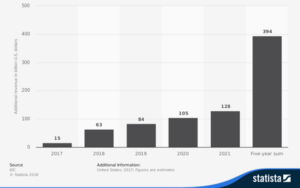Considerations to Make Before Choosing a CRM Platform

What Is CRM Software?
Customer Relationship Management or CRM is about more than just the first step – contacting potential leads. It involves lead nurturing, and trust building, alongside the development of a dynamic repository of customer information and contact history. The next logical step is granting your teams access to this information and piping it out to other business software solutions via smart integrations.
Over the last few years, User experience or UX has become crucially important, and the ability to effectively manage a business’s relationship with customers through the entire sales and after-sales journey has become a key ingredient of success. For many small to medium businesses (SMB’s), attempting to emulate CRM functionality on a large, cluttered spreadsheet could lead to confusion and redundancy.
Compared to spreadsheets, CRM software is much easier to use, and has greater functionality. With CRM solutions you can dynamically create calendar events, set reminders, and even track and document customer sentiments via recorded conversations since providers usually integrate messaging and phone calling functionalities into the solution.
An effective CRM system stores your customers’ contact information and records the details of each relationship and every interaction – whether it’s over the phone, via email or across other channels like social media and live chat. This data is essentially a goldmine of opportunities, allowing you to accurately identify prospects for cross-selling, up-selling, and conversion.
The Customer Relationship Management software also acts as a fail-safe that prevents salespeople from pursuing prospects on their own. Choosing the right CRM solution for your business will significantly boost your team’s productivity, collaboration, sales and improve customer retention and satisfaction.
What the Data Indicates
In a recent report titled “CRM Software Market Research Report – Global Forecast to 2023”, market research firm Market Research Future estimates that the CRM market will grow up to over $35 billion by the year 2023. Moreover, the market’s compound annual growth rate (CAGR) is predicted to be slightly over 6 percent up until 2023 according to MRF’s report.
Manufacturers like Microsoft and Salesforce will be looking to either build their own AI engines to boost their proprietary CRM’s capabilities or partner with market leaders such as IBM’s Watson and the like to integrate AI’s competitive edge into their products and offerings. This will undoubtedly enhance the CRM software’s ability to parse data and reveal new insights into the various customer interactions taking place, thereby improving your bottom line. In the diagram below, Statista, the world’s no.1 Business Data Platform reveals to us the impact of AI’s integration with CRM with estimates:
The Impact of AI’s integration with CRM on Revenue

Image Credit: Statista
Such a huge impact on revenue is possible because AI-augmented CRM is essentially a full quantum leap ahead of what most organizations currently refer to as customer relationship management.
Even as you read this, employees may be using spreadsheets to pass on information regarding past sales via emails. Worse yet, they may use casual word of mouth to pass on such information, which means it’s often missing when required or completely forgotten.
CRM software maintains a detailed record of this information, organizes it efficiently and enables you to take immediate action with it if needed. Such actions include sending gift cards to loyal customers on their birthdays or offering up-sell opportunities to customers based on previous conversations. It’s also an excellent way to win back inactive customers with a clear and effective strategy. The secret is selecting the CRM software that’s ideal for the way your team collaborates. The last thing you’d want is to see your employees wrestling with new software instead of interacting with customers.
Don’t get it twisted, though! CRM Software isn’t just about tracking and maintaining customer information. Even though most people view CRM software as primarily a sales tool, it’s clearly transcended that definition. Customer Service and Marketing departments can benefit greatly by using CRM data to improve their offerings and operations. Marketing professionals can use this information to more effectively segment their target audience and focus their efforts where they see the most potential for returns.
CRM software also helps in coordinating interdepartmental actions. For instance, the sales team could benefit from information that a customer service representative obtained in a separate transaction or vice versa. Depending on the software you select, you can set and track monthly sales targets, deliver and track your email marketing efforts, and monitor what people are saying about you and on your brand on social media.
Add-ons & Pricing
Price can be quite a significant factor when you’re considering which CRM solution to invest in, however, that analysis should be about more than just the upfront cost. Most CRM software we assessed offer per-user pricing, but it’s also important to review what features are included at each price level while keeping in mind which features you require.
Training can also be quite costly along with upgrades and ongoing customer support. It would be wise to assess how much it would cost to fully integrate the software with your existing systems including any additional equipment costs. The mobile implementation may appear seamless on the provider’s website, but would it look the same way once you’ve set up the customized CRM forms for your day-to-day business operations? Will you need to purchase new smartphones or tablets for your sales and customer service teams? These costs can add up, so it’s important to sift through the details.
It’s important to try out more than one program before you make a decision, so that you can take into account the amount of time you’ll have to invest and the time you’ll save as a result. This way, you’ll be able to select the software that’s the most efficient for your business. Larger organizations usually don’t mind investing time and resources into training and onboarding employees, and customizing software solutions themselves. Smaller teams, on the other hand, can’t afford to invest in software that requires a lot up front; typically, you want something that’ll be up and running within a day.
Many CRM providers are expanding their products’ horizons by venturing into other areas beyond customer relationships. Similar to email marketing vendors, CRM platforms are gravitating towards the management of the entire sales lifecycle end-to-end with CRM representing the customer journey. The more comprehensive the tool, the more you’ll need to customize it to fit your requirements. This is why we’ve put so much emphasis on the careful consideration of every aspect of a CRM tool.
If you carefully examine the support documentation, you’ll gain a better understanding of the setup complexity and any compatibility issues with you existing systems. Take advantage of the free evaluation period (if available) to try out key features – add information manually, connect accounts, import data, and assign tasks to other users. Consider how helpful the software is and whether or not it requires additional work. Keep track of how frequently you have to consult the help desk to complete basic tasks. In the end, you’ll have a fair idea of how compatible the CRM tool is with your business.
New Trends in the CRM Industry
One of the persistent trends in the CRM industry is the consolidation of CRM tools into more comprehensive product ecosystems. Some vendors, like the respectable Zoho CRM, don’t just offer you a flagship suite of solutions within their ecosystem, but also set the required template for the rest of the solutions they offer.
Once a popular standalone solution, Base CRM was acquired by Zendesk and rebranded as Zendesk Sell – a better integrated solution that can tap into Zendesk’s vast array of customer support-based SMB solutions.
Similarly, Freshsales CRM offers a lightweight and easy-to-use SMB-centric CRM solution whilst providing greater functionality. This includes integrations, sales intelligence features, and workflow automation. Another benefit of using Freshsales’ proprietary CRM is that it synchronizes seamlessly with their Freshdesk and Freshcaller solutions – a unique convenience for businesses.
Other solutions like Sales Creatio CRM have intentionally designed their user interfaces to enable users to switch on specific business processes. Their proprietary technology makes it possible to toggle between Sales, Marketing and Service effortlessly, functioning more like a dynamic control center for running various aspects of your CRM tool.
Small to medium businesses (SMBs) need to consider CRM a long-term investment when picking and choosing between the several options currently on the market. Growth-stage businesses and companies looking to expand should start by analyzing which solution will be the most feasible in the long-run.
Analysis & Adoption
Take your time when you analyze what a certain CRM solution offers, and more importantly, what you need your CRM to do in a particular sales cycle. Many organizations suffer from CRM adoption problems when they simply purchase an out-of-the-box solution and bolt it onto existing sales and marketing workflows. If you go the same route, your salespeople and even their managers will probably view the system as another obstacle they have to overcome on their tiresome quest for a commission, instead of a powerful tool that’ll help them accomplish this quest faster.
Over time, CRM software has become more powerful and complex by branching out into several new areas. There are many options when it comes to implementing your CRM. You can choose a Software as a Service (SaaS) model or deploy it on-premises by setting up your own server. Cloud-based CRM solutions are also rapidly gaining popularity because it’s much more convenient and much less time-consuming. Keep an eye out for software with a solid foundation in web analytics and social media management, so you’re able to record interactions on LinkedIn, Instagram, or Facebook. Consider integrating the CRM solution with your business phone system to capture call information.
Deeply inspect your business procedures, engage with employees about their needs, and measure up that information against the final outcomes. This will help you to get a better idea of which CRM software is right for your business. Admittedly, it’s tempting to skip this homework and simply buy one of those big, all-inclusive CRM packages that you hope will contain all the features you need both now and in the future. However, this shotgun approach will nearly always end up costing you far more time and money, while also offering less adaptability than you’d anticipate.
This is due to the fact that these big CRM packages are usually platforms instead of tools. This means that the various features they advertise are actually a result of integrating with a host of third-party solution providers, instead of optional features you can toggle on and off. Third-party integration results in more licensing dollars spent along with higher overall integration costs.
A more reasonable approach is to first tackle the question of how your employees will use the software and whether they’ll be able to use it the way they want. Consider which tools members of your organization currently use along with any procedures they observe. Determine how well those workflows map onto the CRM tool you’re assessing. Consider some common tasks like logging a call or email. If users have to navigate through several menus and submenus to complete such tasks, the tool will actually be making their job more challenging instead of making it easier.
An increasing number of CRM solutions are integrating the email and sales experience into a centralized dashboard or single smart inbox to manage all your daily tasks and communications without ever having to exit the CRM tool. Much like any new technology, it’s important that you capitalize on the availability of free trials whenever possible. Regardless of how many demos you’ve watched or reviews you’ve read, you can’t possibly get a sense of the CRM tool’s real-world application unless you try it out. Ensure that your colleagues from different departments try out the tool, so you can get a better perspective of how wide its applications are in various situations and processes. Most vendors offer a 14-day trial at least, and some, like Apptivo, Zoho, and Insightly, offer free plans with limitations on features and number of users. Sometimes they can serve as a complete solution for smaller businesses or a longer experiment for big companies.
Ease-of-Use & Support
CRM solutions are designed to be intuitive for the user; otherwise no one would ever use them. Write down the number of clicks you make to complete basic tasks and make a note of how easy or challenging accessing various features is. Aside from being easy to use, CRM software should be able to efficiently manage user errors.
For example, if you try to complete the wrong task on the screen or enter the wrong information, a good CRM tool will spot the error and offer a quick solution. On the other hand, a poorly designed CRM solution will simply prompt an unhelpful error message, or worse, allow the error to go through unchecked. One strategy to determine if the CRM tool is actually easy to use is by training your colleagues or employees to use it. If you have trouble teaching others, you should take note of this.
Consider the time you’ll have to invest in getting your team up to speed and whether or not the return is worth the investment. Lastly, when encountering problems, whether it’s a software bug, delay, or trouble accessing a feature, you’ll need a responsive support team to fall back on.
Determine what kind of support is part of your plan and the availability of staff. If possible, go through the support documentation, Frequently Asked Questions (FAQ) section, and other self-service resources available (these include blog posts, public databases, and webinars). Without a self-service option, please note that you will have no choice but to reach out to customer support every time you run into problems. That being said, you should also be contacting support regularly during the trial period while making a note of their responsiveness. Be curious and ask questions! This will help you get comfortable with the ins and outs of the product in question. CRM solutions can be complex, so support has to be straightforward.
Pay attention to the holes in the support plan! Several CRM software, specifically in the SaaS category, provide layered, subscription-based plans & pricing. This usually means varying levels of support for the different packages on offer. For example, if your business operations require weekend access to a CRM tool, you should ensure that you have access to support during that period. Look for the Best Mobile, Email, and Social Features Don’t lose focus of the unique CRM capabilities that your business needs. Ensure that the software you ultimately choose captures the information vital for your growth, has effective follow-up capability, and is easy enough to use for your team to work with, instead of around.
Keep in mind that emerging technologies, while seemingly glamorous, aren’t necessarily pervasive. A good example would be that of social media. It’s a revolutionary technology that enables businesses to directly reach out to customers. But as much as social and collaborative applications are catching on, email is still alive and well. Most consumers today expect businesses to contact them through emails, and with emails, you can transfer more data than you could on a Twitter or Instagram post.
Determine how your business interacts with clients via email and ensure that the CRM is helping to improve those relationships, not hinder them. Once fully optimized, a CRM should automatically capture data from each email interaction, instead of forcing your employees to enter email data manually. Do take some time to properly evaluate the mobile app. For all intents and purposes, you should consider this to be a separate application, not a mobile “functionality,” and you shouldn’t have to pay extra for it.
Mobile devices are a completely different breed altogether compared to laptops and computers. Employees use them very differently and software also renders them differently. This means that business processes involving mobile devices will also behave differently. Ensure that the CRM solution you choose also supports the mobile device platform your team will use and carefully examine the capabilities of the application itself. Some apps offer read only views of your sales funnel or contact information that you can look up on the go. These apps don’t allow you to make changes until you access it from a laptop or computer. Others offer seamless integration and responsive designs, enabling you to do everything you would do on a computer on a mobile device. Don’t decide on a solution unless you have tested the mobile app in all the different situations your employees would face in their daily routine.
Many SMBs and their agents might even prefer a seamless and enjoyable mobile CRM experience over an overly complex desktop set up. Several CRM vendors like Zoho and Sugar CRM cater to the mobile or remote workforce. Their apps are packed with features, and boast responsive layouts and designs aimed to offer a seamless mobile user experience. If you have sales professionals in the field who mainly work on their tablets and smartphones, then you need to provide them the tailored solutions they need.
Lead Management & Marketing Automation
The ability to serve as a lynchpin for a carefully crafted marketing automation strategy is one of the most valuable aspects of a CRM solution, and unfortunately, not all software packages offer it – although most providers are starting to get it. Marketing automation is quite the buzzword nowadays, and it refers to the software’s ability to notify sales nad marketing professionals to follow up with customers when they’re most interested. Automation reminds you, and in certain cases handles for you, various tasks such as following up 30 days after a sales interaction with a coupon or calling a prospect 14 days after they sign up for a free trial. It can also extend to other software, like kicking off an email marketing campaign based on some pre-existing criteria established in a previous phone call with the customer. Marketing automation leads to sales in instances where a prospective buyer scraps an online shopping cart without checking out. The system can send a perfectly-timed email to the customer offering a discount, coupon or other incentives to buy.
Lead management is at the heart of every CRM platform out there! Lead management includes tracking and managing prospective customers (also known as “leads”) throughout the sales funnel or pipeline. Some CRM software providers offer a greater degree of marketing automation to trigger actions based on how far along the customer is on their journey. Lead management is an integral aspect of every CRM solution, but not every tool handles this process well.
Some CRM platforms have email marketing capabilities built in while others connect to third-party services like Mailchimp or Campaigner. Automation also plays a role in email marketing, where an action by a prospect, lead or existing customer triggers an email, or email campaign. Suppose a user signs up for a webinar on your site. This can trigger a series of emails with details of what to do next. Similarly, if a user cancels their subscription, that action can trigger an off-boarding campaign that offers them the option to save their data or an incentive to renew their subscription instead of cancelling. Automation makes it possible to change the status of a prospect or customer based on an action they have taken.
Machine Learning (ML) and Artificial Intelligence (AI) are really starting to make an impact on CRM software. Sales Creatio uses automation with predictive technology to remind users to complete tasks and recommend what they should do next. Salesforce released its Einstein AI-based business intelligence (BI) platform, which provides automation across email management, lead and opportunity scoring, and even forecasting. These technologies have immense potential, and are already helping businesses streamline processes and boost overall productivity and performance.
Conclusion
Choosing the right CRM for your business is a tedious and time-consuming process. However, using the considerations mentioned in this article along with your own experience with various CRM solutions, you’ll find that doing a little bit of homework goes a long way. In the end, a well-matched, fully-customizable, and seamlessly integrated CRM solution is one that you should look for. Ideally, a CRM solution should meet all your businesses’ needs whilst also being reasonably priced. If you seek additional assistance in choosing a CRM that’s right for you, feel free to leave us a comment or reach out to us on our website for a free consultation.




